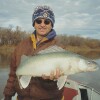GRAND FORKS -- It started at an early age for Seth Owens, this passion for birdwatching.
“When I was a little kid, I was super into dinosaurs just like every other little kid,” said Owens, 21, a junior University of North Dakota fisheries and wildlife biology major from Hillsboro. “Then, my dad’s a biology teacher, so eventually, he told me that birds evolved from dinosaurs. And I think it was that moment I was like, ‘Well, why would I mess around with the dinosaurs I can only see on paper (when I can look) for the dinosaurs that are in my backyard?’”
ADVERTISEMENT
Since coming to UND in 2019, the birdwatcher and aspiring wildlife photographer has taken his passion to a new level, exploring Grand Forks and the surrounding area with keen ears, keen eyes and a Nikon camera with a very large lens, to observe and photograph birds.
“It wasn’t the cool thing to be the guy that likes birds, the weirdo who’s looking up at the sky the whole time,” Owens said. “But then I came back to school here for Fisheries and Wildlife, and I was like – ‘Wait a second, I can just do this for fun anyway, it doesn’t matter’ – and I started getting into birding a bit more.
“Then I got a camera, and it was like, ‘OK, now I’m really going to go out and do it.’ ”
He’s done exactly that the past couple of years as an active – and perhaps the youngest – participant in Grand Forks’ birdwatching scene.
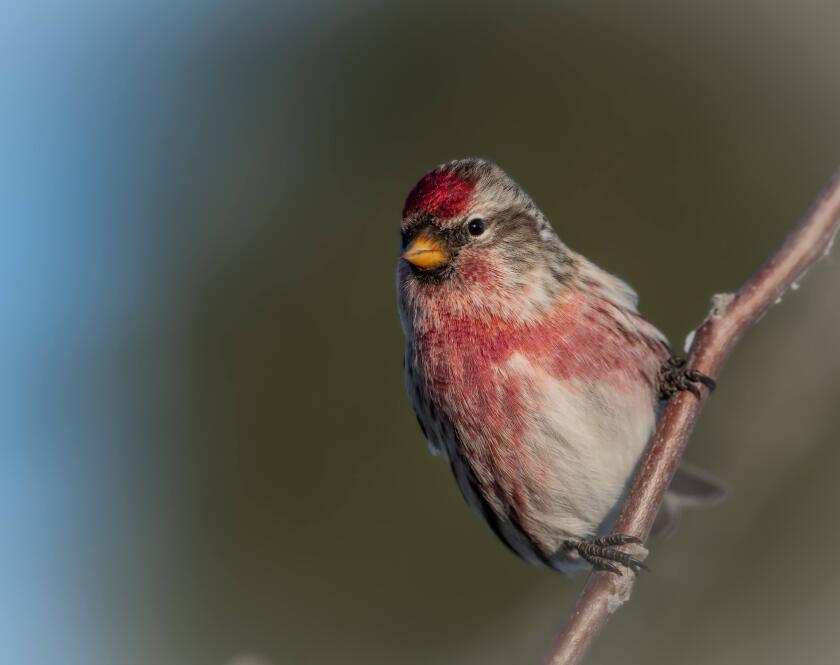
ADVERTISEMENT
“His enthusiasm is contagious,” said Dave Lambeth of the Grand Cities Bird Club, widely known as the dean of Grand Forks birdwatchers.
There's plenty to be enthusiastic about, Owens says, adding Grand Forks County regularly has the highest checklist count on eBird, an online database of bird observations.
RELATED STORIES:
“Grand Forks is a pretty cool spot because we’ve got so many trees and a variety of different habitats,” he said. “You go a mile or two west out of town, you run into that very saline prairie, which is incredible habitat. It’s like some of the last tallgrass prairie that’s in the world. And we’ve got prairie chickens, (sharp-tailed) grouse – we’ve got all sorts of grassland birds.”
The tricky part, Owens says, is finding the time to look for all of them. Between classes, his position as a volunteer coach and team photographer for the Central High �������� wrestling team and the short winter days, it’s tough to find time for birding during the week, Owens says.
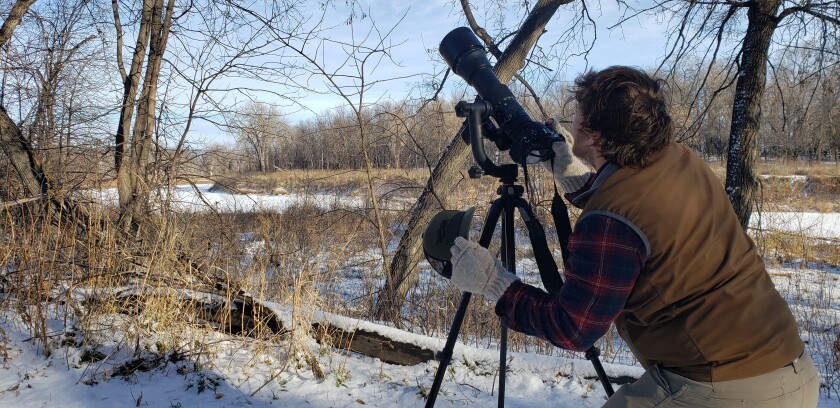
ADVERTISEMENT
He tries to make up for it on weekends.
“Pretty much every weekend, I try to get out for maybe four or five hours,” he said.
Birding excursion
It’s a sunny afternoon in early December, and Owens has a couple of hours between classes and wrestling practice to get outside and see what he can see. He’s on a mission at Lincoln Golf Course along the Red River in Grand Forks, hoping for another glimpse of the saw-whet owl that’s been hanging out in a popular birding spot near the clubhouse.
Owens already has photographed the tiny owl nestled in the lower branches of a large spruce tree, along with an equally photogenic barred owl perched in a tree nearby, but there’s always the chance for more sightings and better photographs, he says.

“Owls are also just so naturally charismatic,” Owens said. “It would be difficult to take a picture of an owl that isn’t somewhat interesting.”
ADVERTISEMENT
There’ll be no owl sightings this afternoon, but that doesn’t deter Owens. There’s plenty of territory to explore nearby, along the unpaved trails that wind south through the woodlands next to the Red River.
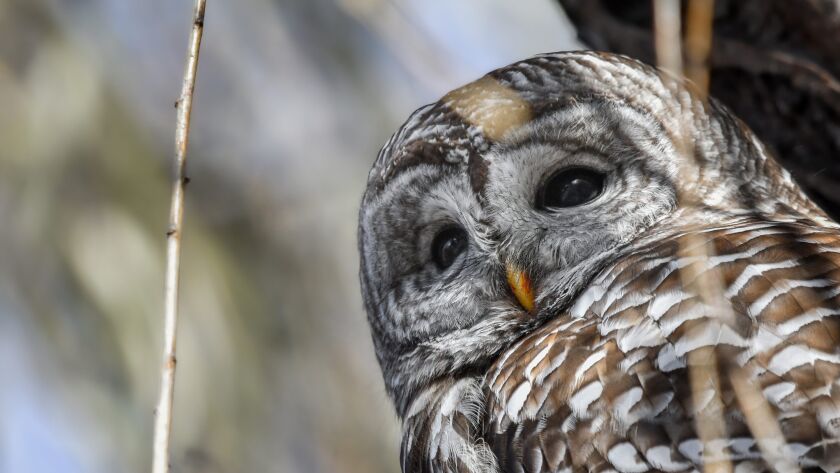
Redpolls, black-capped chickadees, blue jays, nuthatches and woodpeckers of various kinds are among the winter species he regularly sees and photographs.
“I really like this area around Lincoln Golf Course because there’s a lot of diverse habitat,” Owens said. “We’ve got birds that are going to hang out in these open spaces by the river, we’ve got birds that are going to hide out in high canopies, birds that are going to hang out in spruce and evergreen trees and then chickadees and different thrushes and sparrows that are going to forage along the bottom for seeds and stir up grass.”
Memorable sightings
The past couple of months have been especially memorable for birding locally, Owens says, at least in part because of unusually balmy fall weather that produced some unexpected sightings. In November, Owens reported seeing two sea duck species – long-tailed duck and black scoter – on the lagoons at Grand Forks Air Force Base.
“Consistent rarities,” he calls the sea duck species.
ADVERTISEMENT
“They’re not a duck you’ll see around here that often,” Owens said. “They stick out, they’re different – that’s the only way to put it – exciting.”
More recently, Owens says he saw a hermit thrush Thursday, Dec. 2, in Grand Forks that was “about four states north” of where it should have been.
“He’s lost – he should be south now,” Owens said. “The weird weather has brought in a lot of unique birds, and I think that makes it exciting. It’s not ideal for them because they're way off track. But for birders, it’s like, ‘Maybe there’ll be a new one here.’ You kind of never know what to expect now.”
And if he’s the first to see and report a particular species locally, all the better, Owens says.
“It’s almost a competition, I guess,” he said. “I’m very competitive so I look at birding almost competitively, but it’s also just another excuse to get outside, interact with friends that enjoy it and get out of the mundane aspects of life, sometimes, like doing homework.”
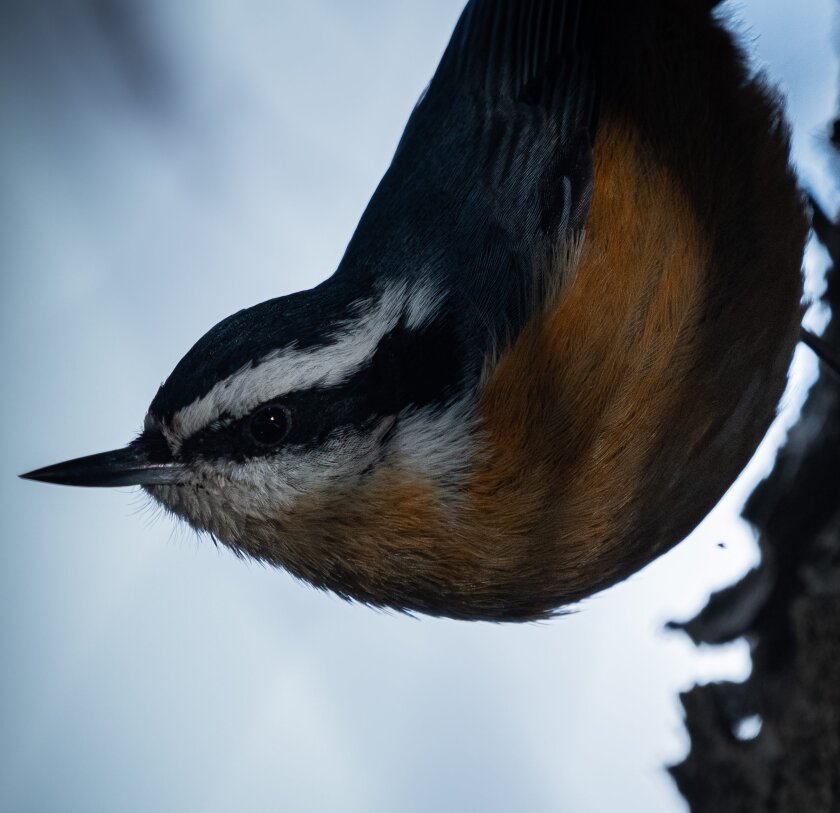
ADVERTISEMENT
Winter pastime
Getting outside to see and photograph birds also makes the winter go by faster, Owens says, even if it means venturing out on below-zero days.
“This winter will be really easy to get through compared to other ones,” Owens said. “I’ll just go outside and hang out for two hours. Even if I'm freezing my butt off, there are little birds out here that are making me look like a wimp.
“It’s always a goal to go out and find something new; that’s the drive.”
He might have a competitive streak, but Owens says he also welcomes people to join him. As perhaps the youngest contributor to the Owens says he feels a responsibility to share his passion with anyone who’s interested.
As with hunting and fishing, young people also are the future of birdwatching, Owens says. Losing that participation could mean losing a connection with nature and conservation.
“It’s scary knowing that if I can't excite one or two more people behind me, the cycle is going to stop,” he said. “That’s why I share (photos and information) on and . … I want to get people excited. Because I’ve been lucky enough to have parents who really pushed for me to explore and get excited about nature. And so it’s only fair for me to perpetuate that cycle.”
Time is short, and other commitments call, but the afternoon excursion with Owens along the frozen Red River produces 11 species: bald eagle, red-bellied woodpecker, downy woodpecker, hairy woodpecker, blue jay, American crow, black-capped chickadee, white-breasted nuthatch, American robin, common redpoll and dark-eyed junco.
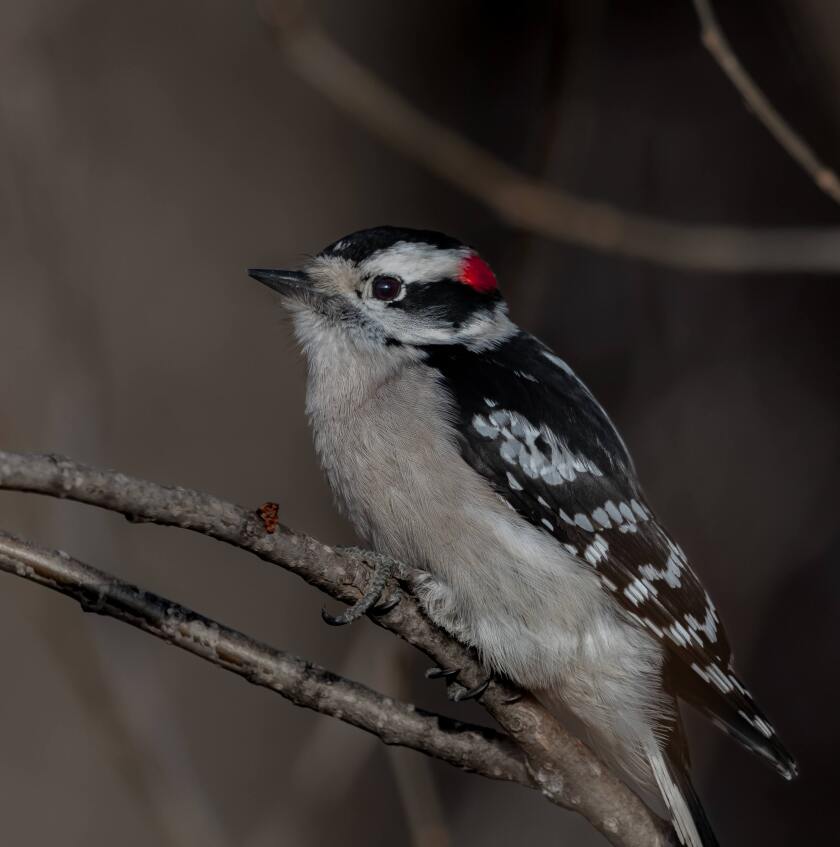
Not bad for a short excursion, and Owens says birding companions are welcome to join him anytime; just reach out on or , he says.
“If you want to go with me, I'll take you out,” he said. “Let's go – it’ll be fun. You’ll learn, I’ll have a good time – everybody’s going to win.”
What he's using
Here’s a look at the photo equipment Owens carries on his birdwatching excursions:
Camera: Nikon D500. “It’s very nice,” he said. “It gets tough in the cold. It works really well in the summer, but sometimes the batteries drain fast in the cold. You’ve just got to pack extras.”
Lens: Sigma 150 to 600 millimeter zoom lens. “It allows me to zoom, and it’s variable, which is nice,” Owens said. “When I’ve got birds up close, I’ll drop it back to maybe 150 millimeters. When I’ve got birds far away or if I want to fill the frame a bit more, I’ll open it up to 600.”
Tripod: Vanguard Alta Pro. “I’m looking to upgrade, but they’re not cheap,” Owens said. He also uses a gimbal head, which absorbs some of the weight of the large lens and makes it easier to move the lens freely. “I think gimbal heads are great because you can move so easily when it’s not locked in,” he said.
As with anything, developing skill as a wildlife photographer takes practice, and Grand Forks, with its variety of habitat, provides an ideal classroom for learning the ropes, Owens says.
“I’ve learned a lot just by practicing, and that’s how I got really comfortable with this camera and this setup,” he said. “For pretty much anything, it just takes time.”


